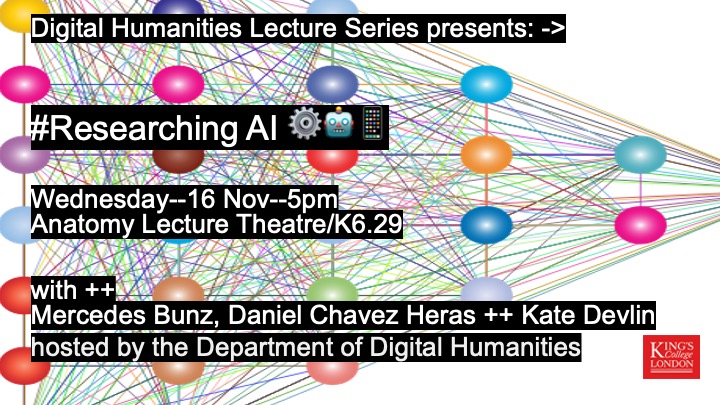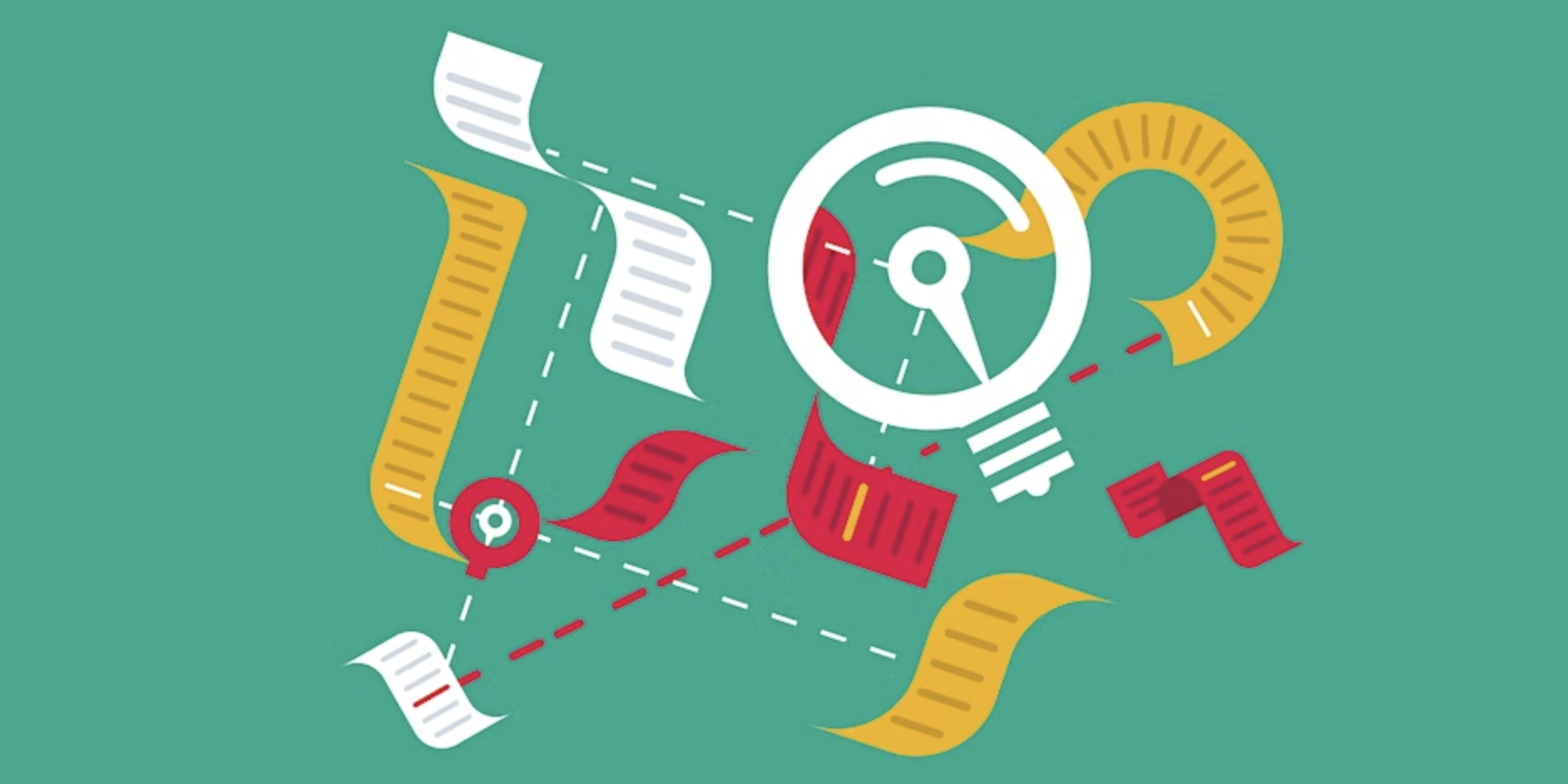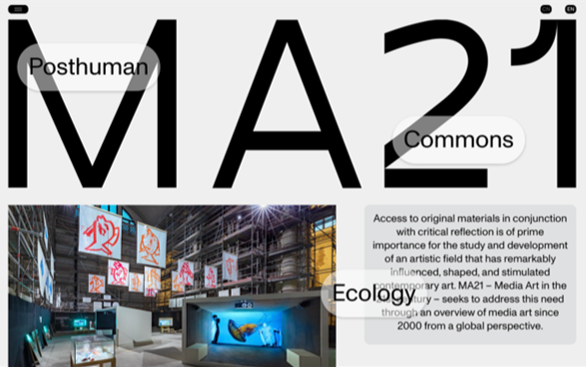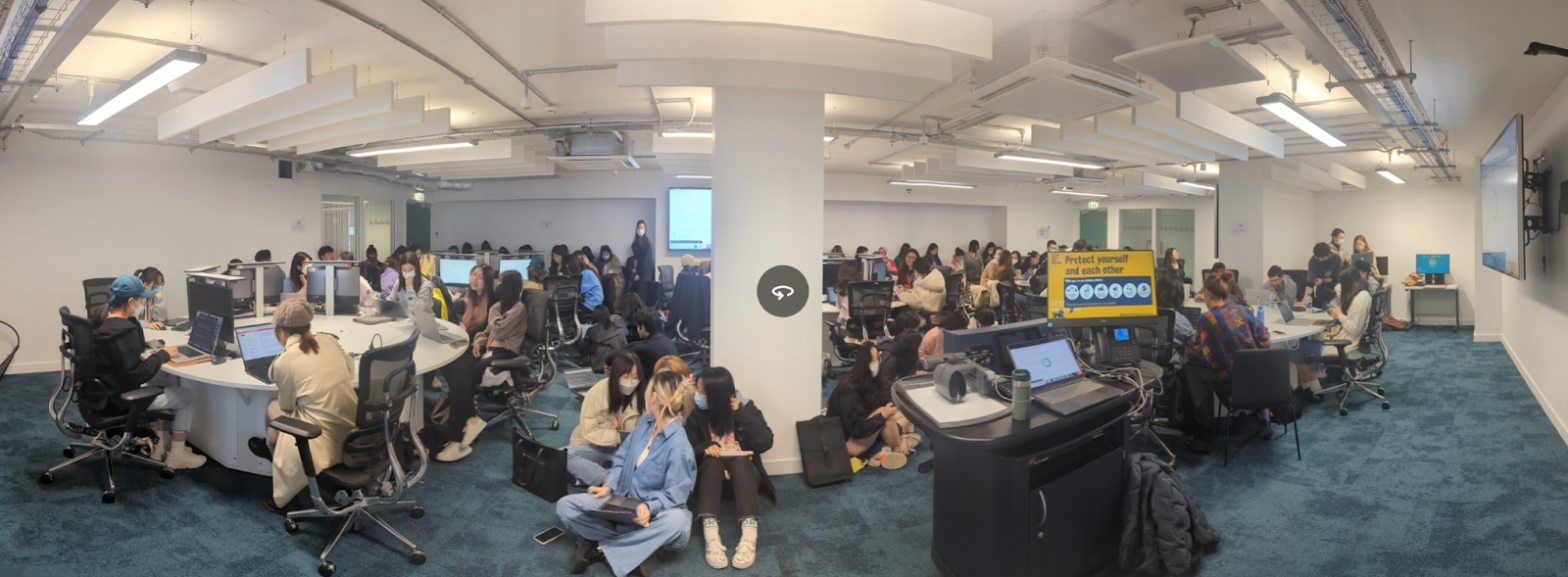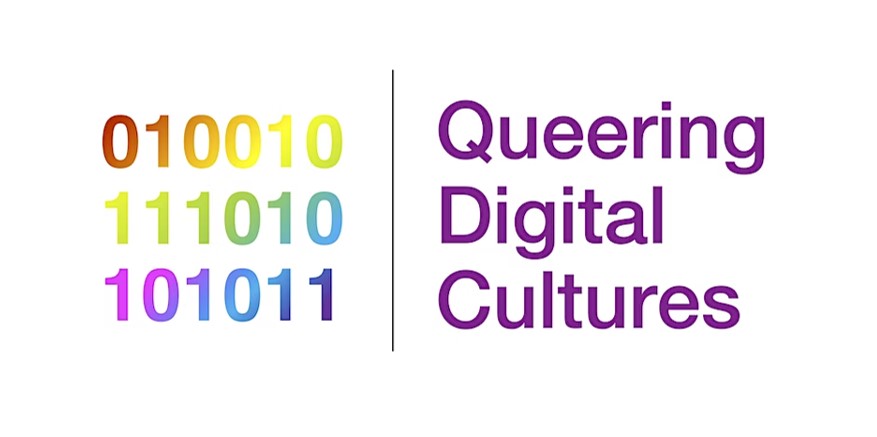A fully funded PhD position is now available at King’s College London on the project “‘Lost for words’: semantic search in the Find Case Law service of The National Archives”, a Collaborative Doctoral Award received by King’s College London in collaboration with The National Archives and funded by the London Arts & Humanities Partnership (LAHP). This interdisciplinary project is an exciting opportunity to work in natural language processing (particularly computational semantics and information retrieval) applied to legal texts and digital humanities.
Continue reading “Call for Applications: Funded (LAHP) KCL & The National Archives Collaborative PhD Project”Call for Papers: Times of Surveillance
The Department of Digital Humanities at King’s College London is delighted to host workshop “Times of Surveillance” in early April 2023, welcoming keynote speaker Sun-Ha Hong, author of Technologies of Speculation: The Limits of Knowledge in a Data-Driven Society (NYU Press 2020).
Please send paper proposals (including a title, 300-word abstract and short biography, using your name as the file title) to kate.davis@kcl.ac.uk by 16th January 2023. It is intended that the workshop will also lead directly to the publication of an edited volume.
Continue reading “Call for Papers: Times of Surveillance”Call for abstracts: New Directions in Museum Analytics
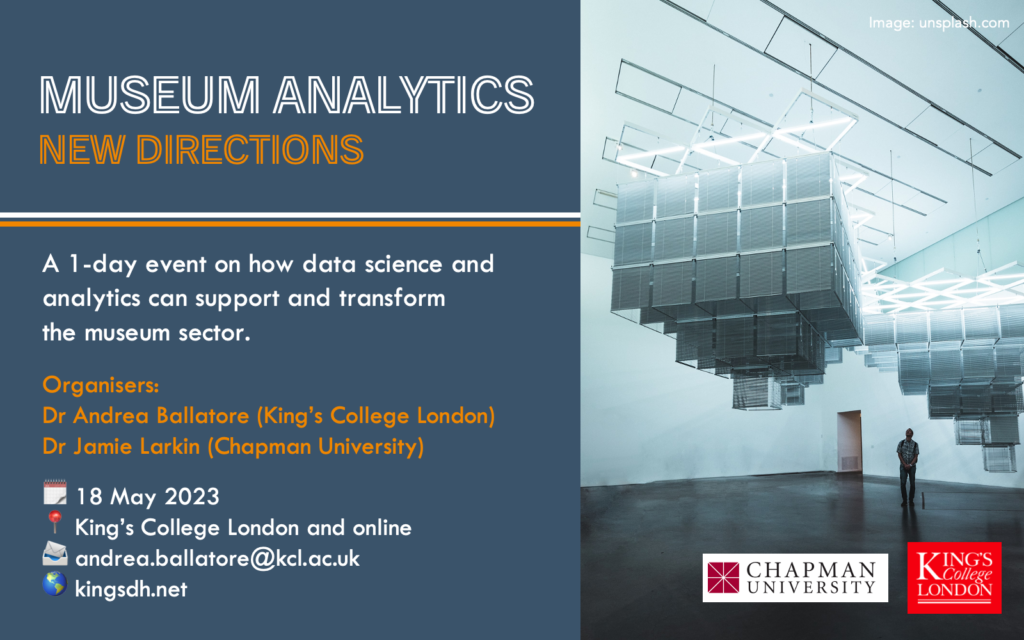
Programme: Museum Analytics: Registration and programme
Call for abstracts
Data science has the capacity to revitalise our understanding of the museum sector, through reframing the history of museum development, charting museum geographies, and highlighting new data relationships in innovative and dynamic ways (e.g. Ballatore & Candlin, 2022). It can also illuminate broader relationships between museums, society, and the wider Creative and Cultural Industries (e.g. Me|Mind, 2021), to help produce more joined-up cultural policy and strategy (Centre for Cultural Value, 2022).
The application of data analytics presents growing opportunities for institutions and researchers across the cultural sector. While museums often use data to develop visitor profiles and drive income generation, there is tremendous scope to leverage data in ways that reimagine the cultural work of the museum and knowledge of the museum sector. Within museums, work has taken place to use data to enhance curatorial decision-making (Tate, 2016), to personalise collections databases (Noehrer et al., 2022), and to enrich and improve visitor experiences (e.g. Villaespesa & Murphy, 2021).
Stemming from the Mapping Museums project (http://www.mappingmuseums.org), this one-day conference seeks to draw together museum studies scholars, data scientists, cultural policymakers, and geographers to discuss and debate the role and scope of museum analytics and to frame the development of this area of research and practice. We seek presentations of 15 minutes that examine new directions and applications for museum analytics. Topics of interest include (but are not limited to):
- Applications of data analytics in new areas of museum practice
- Innovative data collection methods in museums
- Social media analytics and user-generated content
- New methods for audience analytics and profiling
- Data-driven museum marketing
- Artificial intelligence (AI) and museums
- Ethical considerations surrounding data practices and datafication in museums
- Innovative data applications in digital museum contexts
- Museum analytics and cultural policy
- Data science to study collections
- Data vocabularies and linked data for museums
- Data infrastructures and capacity across the museum sector
- Quantitative geographies and histories of museums
- History of data science methods to study museums
Digital innovation and crisis-related resilience: enabling and limiting factors
- Introduction:
A broad literature discusses the role of digital platforms in crisis situations. Over more than ten years we have seen a wide range of cases where social media supported different forms of crisis-related mobilization and increasing scope for participation in response to various types of threats. The notion of generativity (Zittrain, 2006) highlights how crisis situations offer an opportunity for the acceleration of innovation beyond the visible range of functions of specific digital tools. That said, we also see that some factors may potentially restrict generativity and innovation in a crisis, and specifically the role of digital platforms in crisis-related mobilization.
Two recently published open-access articles of mine seek to explore both sides of this coin. An article on The Transformation of Participatory Warfare: The Role of Narratives in Connective Mobilization in the Russia–Ukraine War in the Digital War Journal explores the factors that shape the forms and the scope of digitally mediated mobilization in response to an exogenous threat. It analyses how crisis-related innovation supports social resilience in the face of a crisis. An article on Internet Regulation and Crisis-Related Resilience: From Covid-19 to Existential Risks in the Communication Review explores the factors that may restrict large-scale mobilization in the face of crisis and limit social resilience in terms of the capacity to address crisis situations and existential risk.
Continue reading “Digital innovation and crisis-related resilience: enabling and limiting factors”Researching AI
Please join us to discuss AI and how to research it from a humanities point of view. We will present new research in progress from the much hyped text-to-image systems and the ‘calculation of meaning’ to trustworthiness in AI, so join Kate Devlin, Daniel Chavez Heras and Mercedes Bunz in this upcoming event hosted by The Digital Humanities Lecture series.
Date: Wednesday, 16 November
Time: 5.00pm – 6.30pm followed by a reception
Location: Strand Campus, King’s College London
Room: Anatomy Lecture Theatre, floor 6, K6.29
Registration required: https://www.eventbrite.co.uk/e/the-digital-humanities-lectures-researching-ai-tickets-424199892297
Daniel Chavez Heras: Computational Ekphrasis
This talk will be using Computational Ekphrasis as a way to analyse text-to-image systems such as DALL·E 2 and Stable Diffusion, this talk will tease out some of the broader implications of describing images into existence for visual culture and society.
Mercedes Bunz: On the Calculation of Meaning
Machine learning systems enter the human dimension of meaning by calculating it. How does their computational approach towards meaning work and in what way is this approach shifting human epistemologies?
Kate Devlin: AI and Trust
This talk will deliver an overview of the Trusted Autonomous Systems Hub. Can we develop socially beneficial autonomous systems that are both trustworthy in principle and trusted in practice by individuals, society and government?
Mark Coté on transdisciplinary data research at Ideas Summit 2022
Mark Coté, Reader in Data and Society at the Department of Digital Humanities, King’s College London, will be presenting at the Ideas Summit 2022. He was one of 23 leading researchers selected across the college for a seven-month programme which aims to support new research collaborations and directions.
Mark will be presenting a pitch for a “Co-Lab for Transdisciplinary Data Research” around 10.40am UK on 2nd November 2022. Further details about the event are copied below and you can register here.
The Ideas Summit is a celebration of research at King’s College London, showcasing the ‘big ideas’ of 23 ambitious, highly talented academics currently enrolled on the Leading Researchers Programme. In less than 2 minutes, each academic will share their big idea. After the sharing, delegates will have the opportunity to meet with the speakers 1-2-1, to provide feedback, ask questions and discuss potential collaborations.
Media Art 21: Practices, Reflections and Pedagogies of Global Media Art Since 2000
Joanna Zylinska, Professor of Media Philosophy and Critical Digital Practice, has contributed to the development and launch of global project, Media Art 21: Practices, Reflections and Pedagogies of Global Media Art Since 2000, including curating the post-human section and authoring essay, “Nonhuman Creativity”.
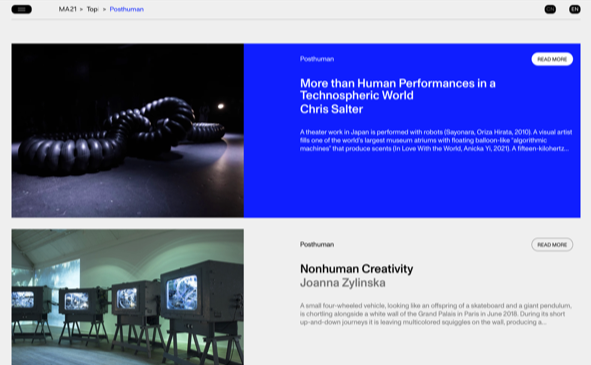
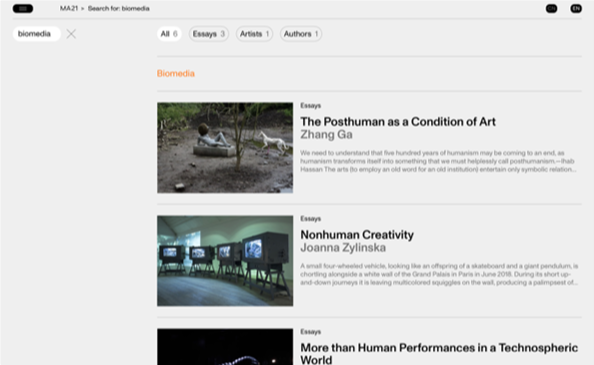
MA21 is a Chinese-English bilingual database-driven online resource initiated and produced by the Institute of Sci-Tech Art, Central Academy of Fine Art, in collaboration with the Art + Design Initiative at University of California, Berkeley.
Major funding is provided by the HE ART FUND with additional support by the New Media Art Foundation.
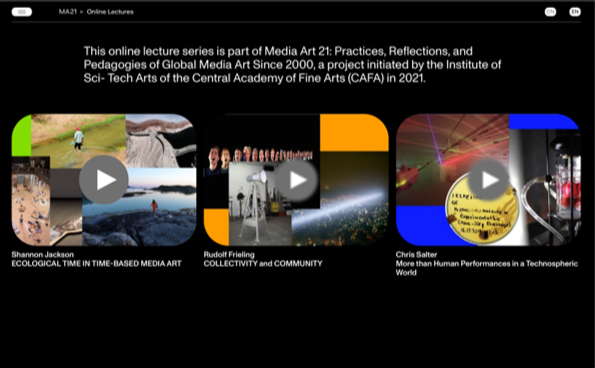
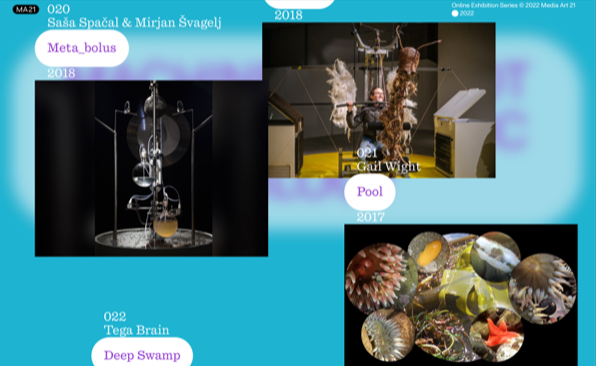
The inception of the project was catalyzed and went into production in the spring of 2021 during the global outbreak of the Covid-19 pandemic as a pedagogical response to increased online and remote learning due to pandemic-imposed physical separations. From a conceptual point of view, it is an attempt to continue the legacy of the highly influential media art online depository Media Art Net and to extend the theoretical discourse as well as trace the praxis of global media art since the new millennium…
With this release, the project has produced several hundred entries on artists and artworks to address the three essential thematic areas that inform the intellectual direction of the MA21 project, namely: Posthuman, Ecologies, and The Commons. The online project is designed with highly interactive features, employing multimedia technologies to cross reference artworks, artists, and related points of interest. In addition, a body of commissioned essays by leading scholars and curators have laid the foundational work on contextualizing and evaluating the artworks within larger social-economical ecologies as well as art-historical systems. Together, they weave a web of many threads to underscore the complex interdependence and reciprocity between thematic ramifications and artistic experiments.
For inquiries, please email info@ma21.org.
“The Sim Project” @ the Science Gallery London
Dr Zeena Feldman, Senior Lecturer in Digital Culture, has collaborated with artist/anthropologist Liz Hingley, jewellery designer Sofie Boons, and Frank Menger of the Centre for Print Research, UWE, to develop the innovative “The SIM Project”.
One of five projects encompassed by Testing Ground, an exhibition showcasing projects between King’s College London researchers and creative practitioners, the series reveals how conversations between artists, researchers, and wider communities can change the ways we think about and engage with the world around us.
You can explore their work by visiting Testing Ground at Science Gallery from Tuesday 20th September 2022, for more information about visiting the gallery please click here.
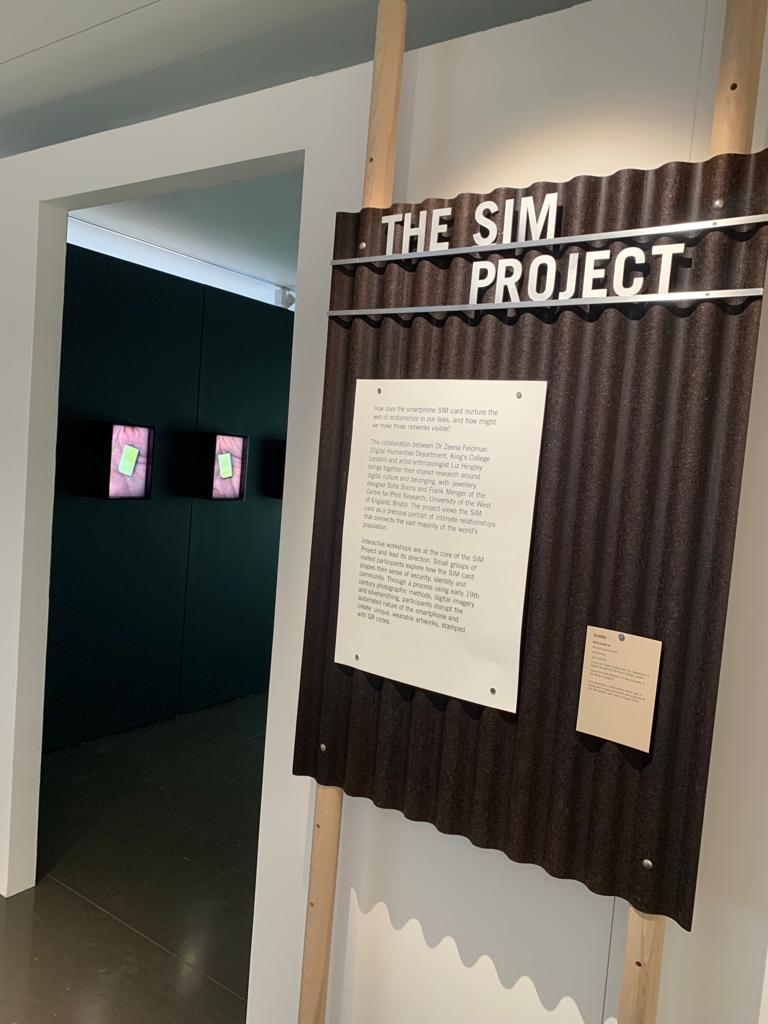
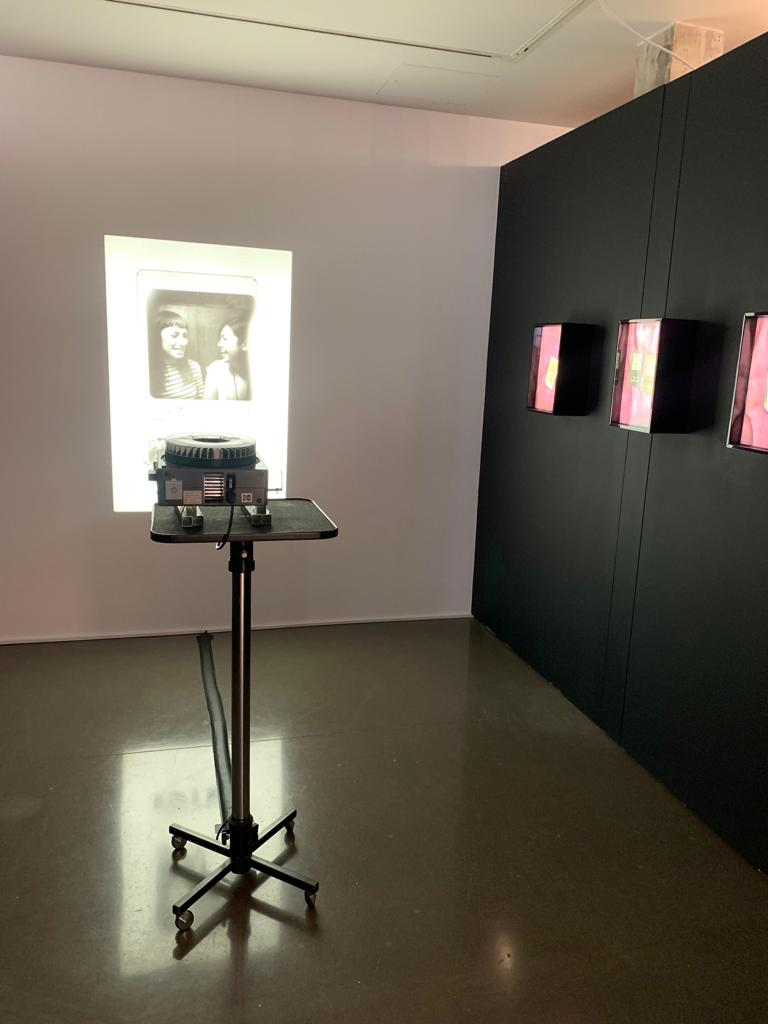
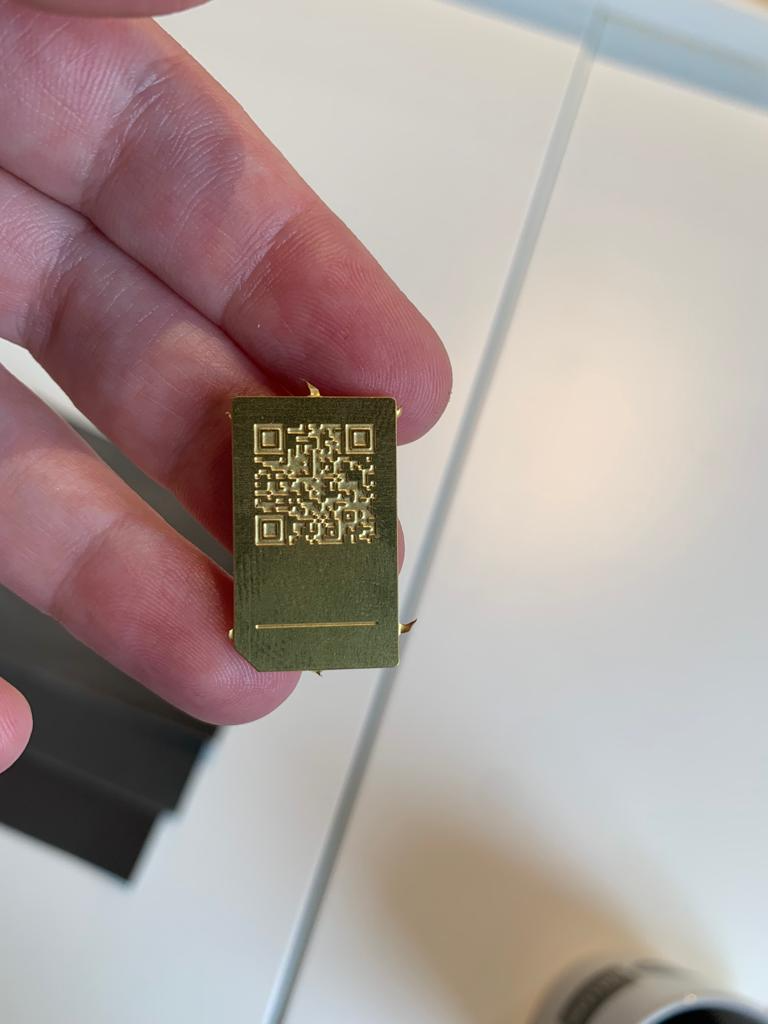
“The SIM Project” views the SIM card as a precious portrait of intimate relationships that connects the vast majority of the world’s population. Interactive workshops are at the core of the SIM Project and lead its direction. Small groups of invited participants explore how the SIM card shapes their sense of identity and community. Through a process using early 19th century photographic methods, digital imagery and silversmithing, participants disrupt the automated nature of smartphone production and create a unique, wearable artwork.
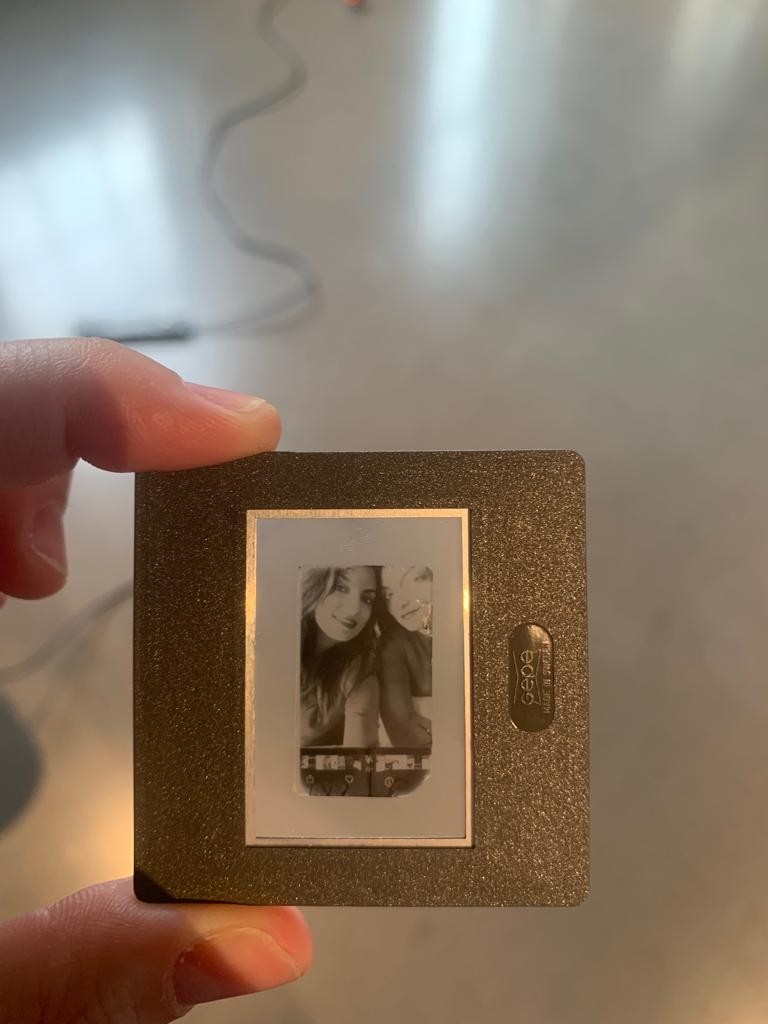
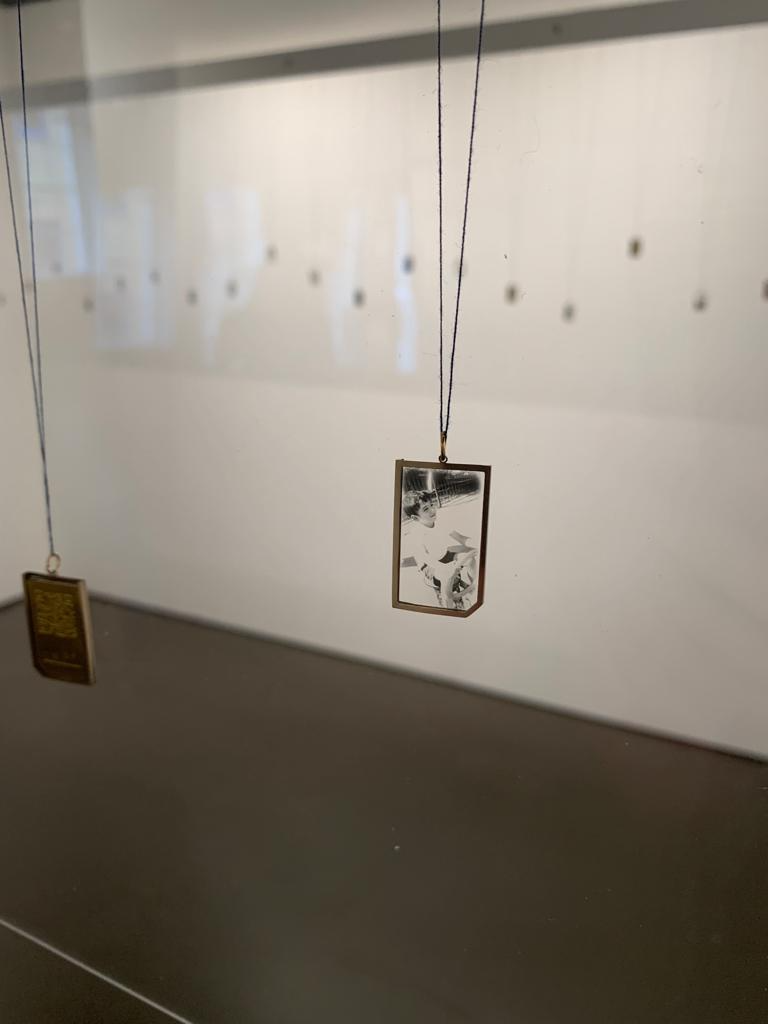
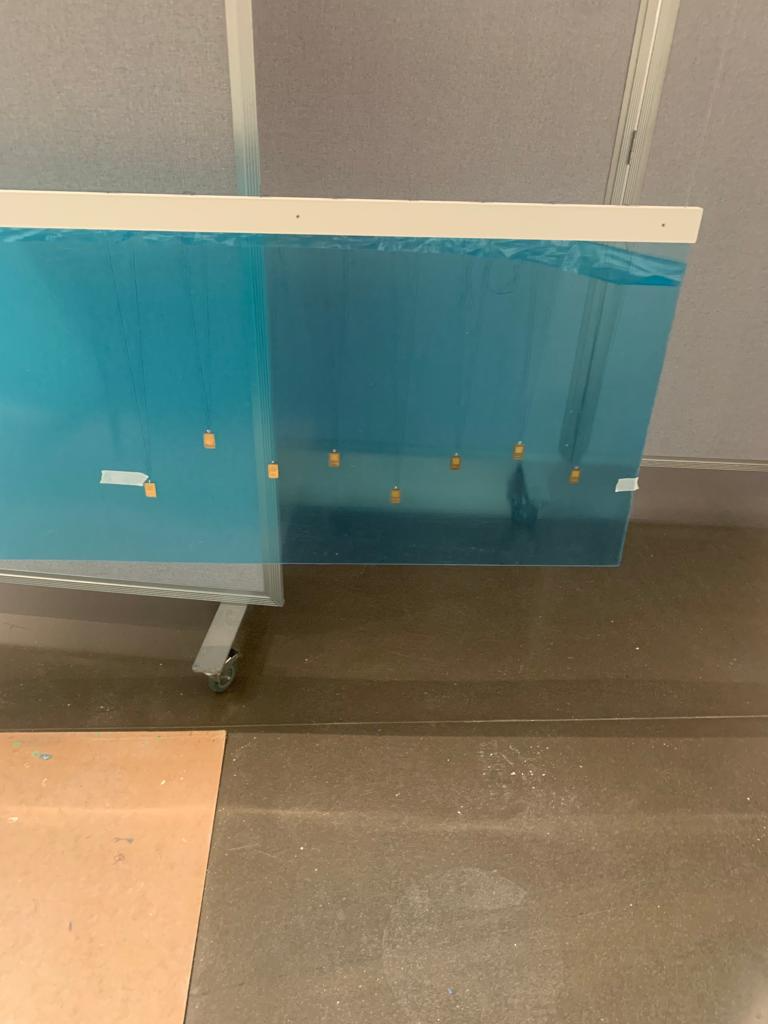
The exhibition shares a display of cameos that were created in interactive workshops, as wearable artworks in the shape of SIM cards, stamped with QR codes. They are on display in both their physical form as small intimate pieces of jewellery as well as light box images that capture the details of the pieces with the hands that made them.
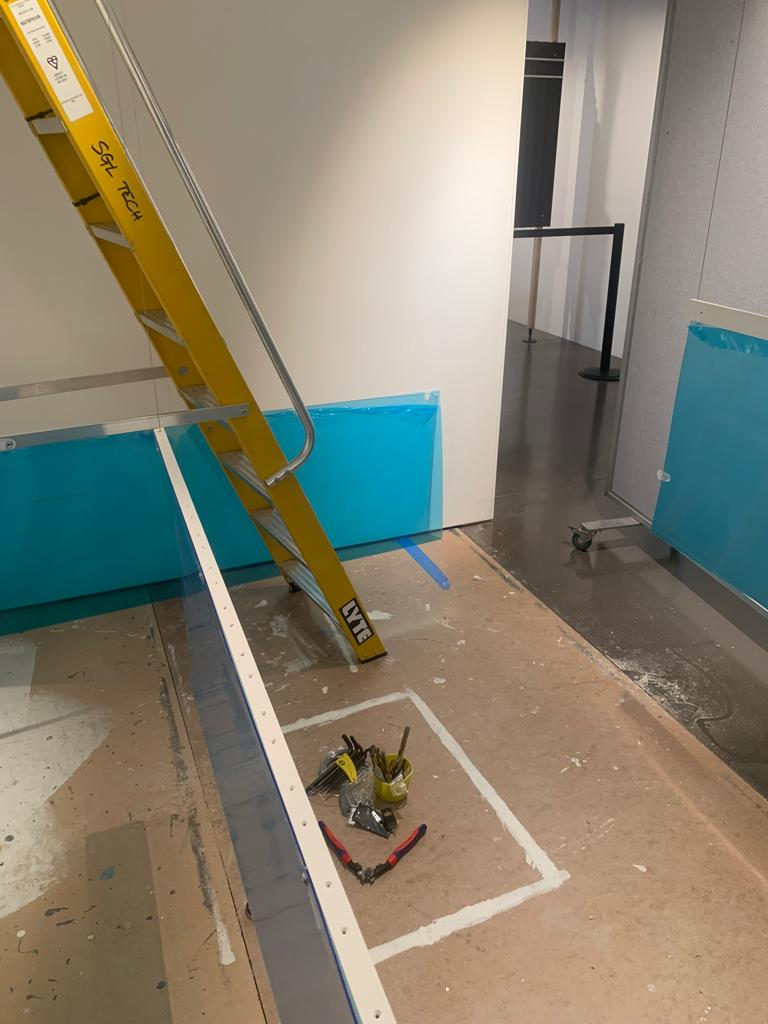
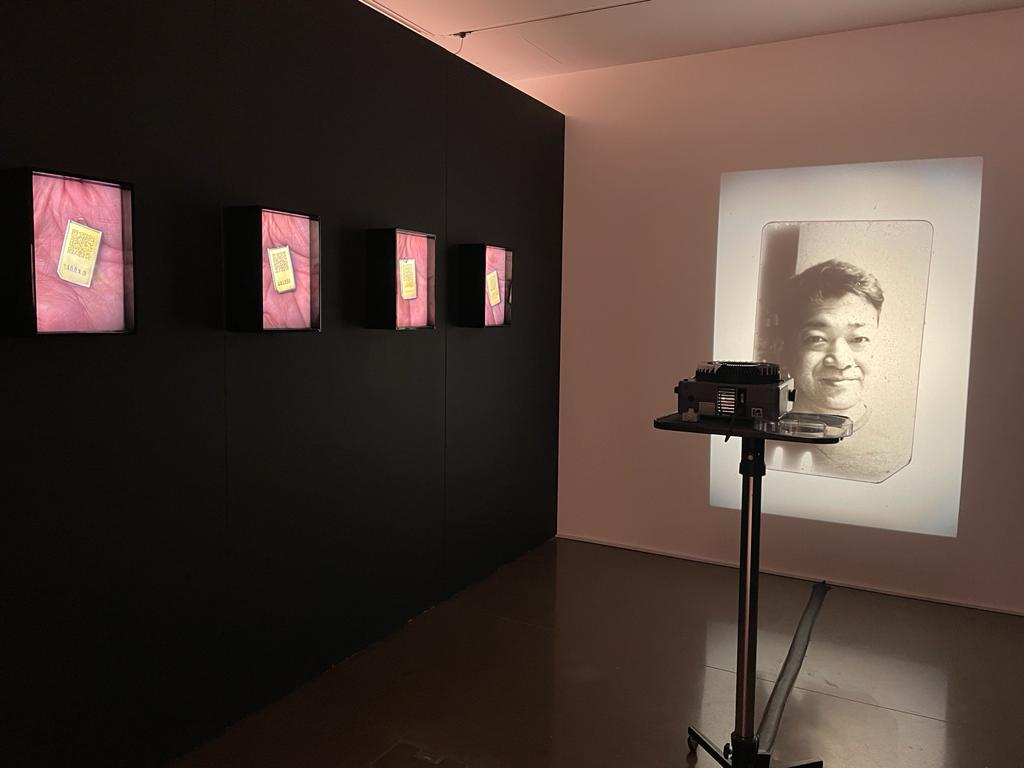
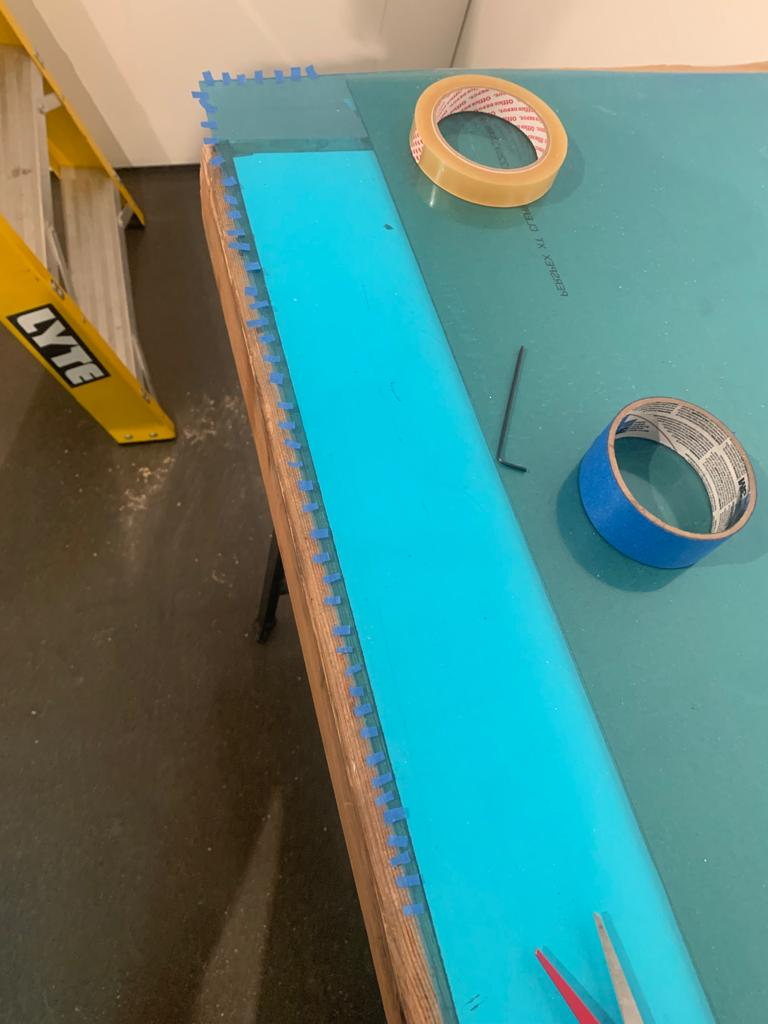
These projects have been developed through King’s Artists, a residency scheme which places artists within faculties across the university. Learn more about them here.
Learning Python at the DDH Coding Lab
The following post is from Dr Maryam Ahmed (@_datamimi) who is running the Coding Lab Python sessions at the Department of Digital Humanities, King’s College London. She is also a Journalist and Data Scientist at BBC News and was a winner of the Statistical Excellence in Journalism Awards in 2021.
Have the topics of political debate changed over time?
Which industries have large gender pay gaps?
Are landlords renting out homes illegally?
This year, students are tackling these questions and more in our Digital Humanities Python Lab.
The Lab is a free, optional class for Digital Humanities students run in both Semesters, where they learn basic programming skills from expert instructors.
This complements the formal teaching they receive on their degree programmes in Digital Culture, Digital Humanities, Digital Asset and Media Management, and Digital Economy.
Why learn to code?
One important way to explore questions in the Digital Humanities is by collecting and analysing large datasets. These could contain text, numbers, or images.
Working with such large datasets can be very difficult and time consuming (if not impossible) to do manually.
That’s why researchers, journalists and others are increasingly using Python in their research. And it’s why we think it’s an important skill to teach our students.
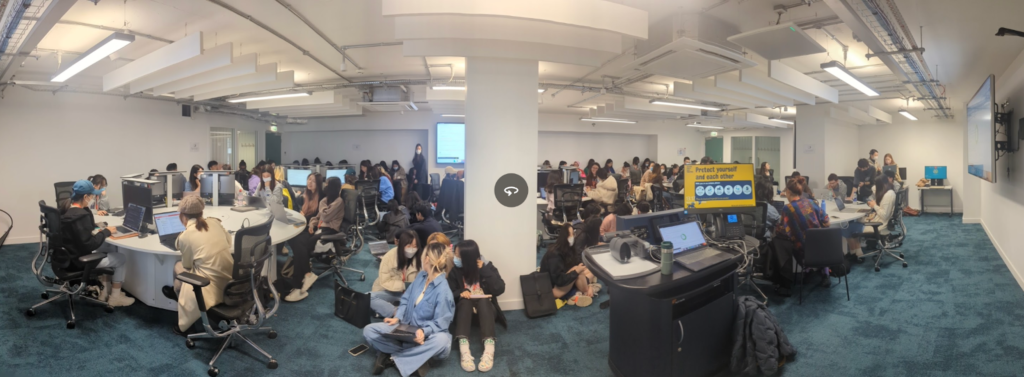
Over six sessions, students are learning how to:
- Grab data from the web using APIs
- Search for trends and outliers in large datasets
- Make sense of text with Natural Language Processing
- Tell stories with charts and maps
No previous knowledge of coding or Python is needed, and participants start writing their own code from the very first session.
Each session consists of taught theory, practical exercises, and time for students to ask questions.
That sounds very technical…
Our Python Lab isn’t just about calculations and data analysis. Students are also learning how to:
- Frame sensible research questions
- Pick the right methods to solve a problem
- Interpret and communicate their results responsibly
Most importantly we’re encouraging students to be exploratory, playful,creative and reflective in the way they use Python.
So much of the joy of coding is in tinkering, breaking things, fixing them and experimenting – all of which happens in our lab (together with lots of coffee).
What next?
Feedback has been positive so far, with the room packed to full capacity and students asking thoughtful questions about how they can apply Python to new problems – from analysing their own Spotify listening data to completing coursework.
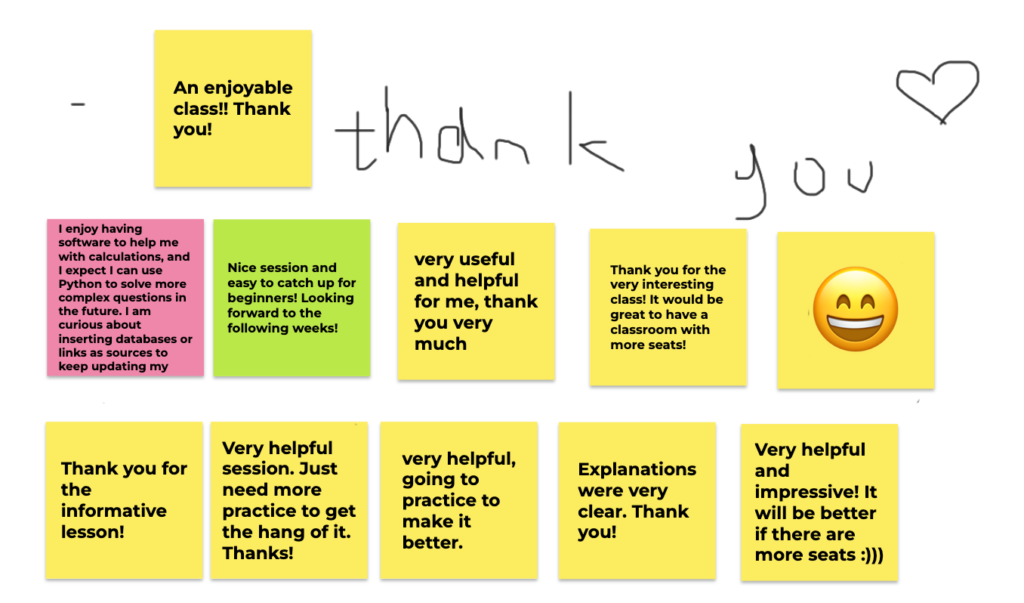
The Lab will run once in Semester 1 and again in Semester 2, to give all students a chance to attend. We’re excited to see what they do with their new found Python powers!
Queering Digital Cultures, Friday 28th October 2022
Zeena Feldman and Jamie Hakim from the Department of Digital Humanities are co-organising an international symposium, “Queering Digital Cultures“, exploring how queer users and tech workers challenge the inequalities and exclusions of today’s internet. The hybrid event will be held on Friday, 28th October 2022 (11.30am to 6pm (BST)) at both King’s College London’s Strand campus and online.
The event is open to the public and free of charge, but registration is required.
The internet is increasingly regarded by users, regulators and NGOs as a public utility. The UN has gone so far as to call internet access a universal right. But the internet is simultaneously seen as a technological infrastructure linked to – and leveraged for – capital production and accumulation. The Queering Digital Cultures symposium aims to explore what this tension between universal access and platform capitalism means for the sex and gender-based assumptions and exclusions generated by today’s internet. We will focus on how homophobia, sexism and transphobia are reproduced in contemporary digital culture and unpack how this intersects with existing inequalities and ‘digital divides’ around race, class and (dis)ability. We train our analytical lens on the ways that mainstream data production, consumption and circulation practices impact sex and gender minorities. We also consider how queer users, activists and tech workers challenge the inequalities and exclusions (re)produced in today’s internet.
Working to understand these issues is crucial for the future of internet studies. Across its thirty-year history, the discipline has critiqued the ways in which digital technologies impact the social register of everyday life. Yet this intellectual project has failed to substantively consider the experiences of sex and gender minorities, and the resulting intersectional exclusions generated by and in today’s internet. Queering Digital Cultures brings together esteemed scholars who have made important contributions to addressing these blindspots.
Speakers:
Kath Albury (Swinburne University of Technology)
Kevin Guyan (University of Glasgow)
Chloé Locatelli (King’s College London)
Shaka McGlotten (Purchase College-SUNY)
Alexander Monea (George Mason University)
Gaspard Pelurson (King’s College London)




